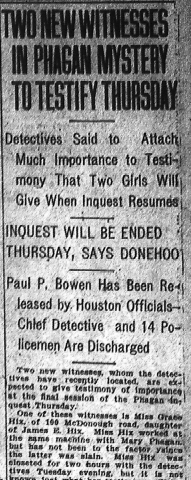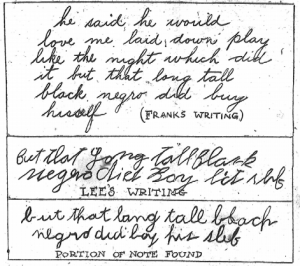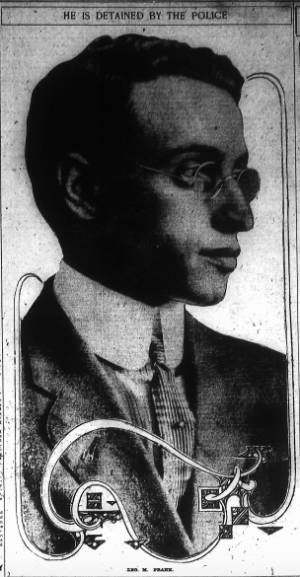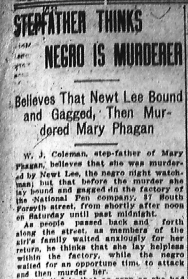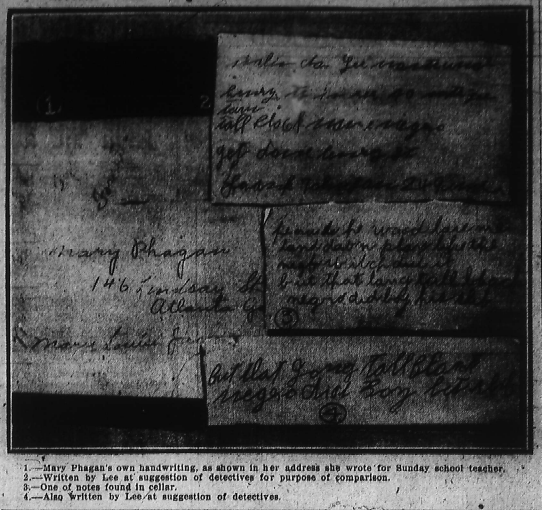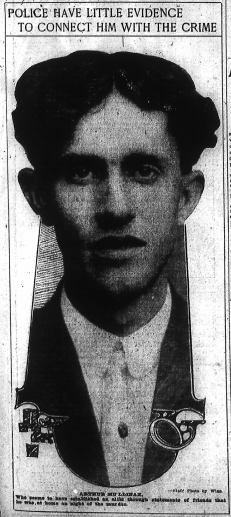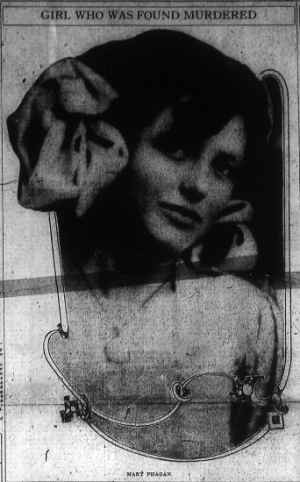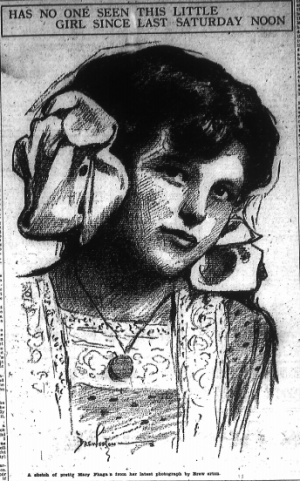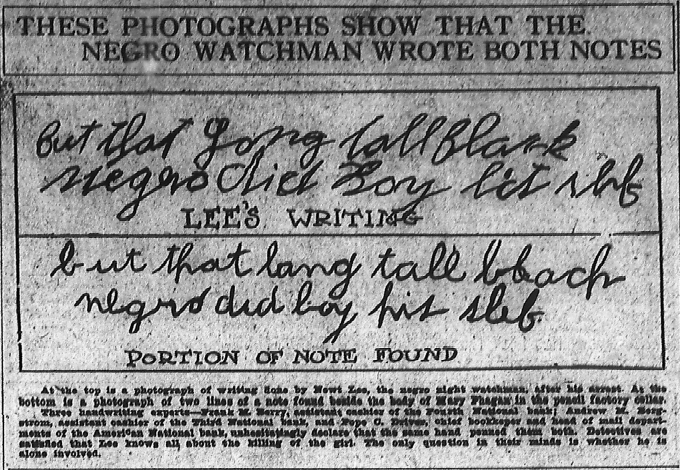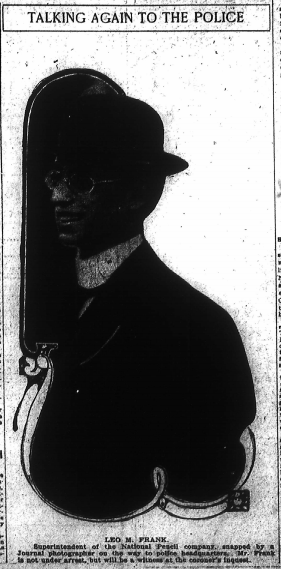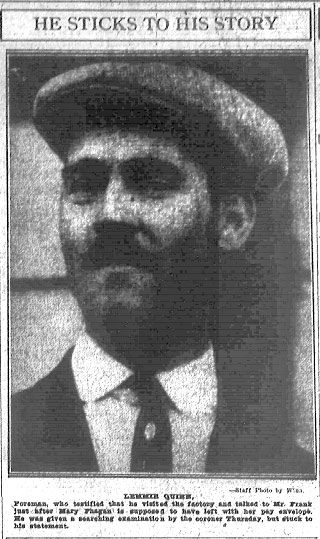
Lemmie Quinn, foreman, who testified that he visited the factory and talked to Mr. Frank just after Mary Phagan is supposed to have left with her pay envelope. He was given a searching examination by the coroner Thursday, but stuck to his statement.
Another in our series of new transcriptions of contemporary articles on the Leo Frank case.
Atlanta Journal
Thursday, May 8th, 1913
Lemmie Quinn, the Factory Foreman, Was Put Through a Grilling Examination, but He Steadily Maintained That He Visited the Factory Shortly After the Time Mary Phagan is Supposed to Have Left With Her Pay Envelope
FRANK’S TREATMENT OF GIRLS IN FACTORY DESCRIBED AS UNIMPEACHABLE BY ONE YOUNG LADY EMPLOYEE
Mr. Frank’s Manner at the Time He Was Informed of the Tragedy by Officers at His Home on Sunday Morning is Told of by Former Policeman — Both Frank and the Negro Night Watchman Are Expected to Testify During Afternoon, When Inquest Will Be Concluded
The coroner’s inquest into the mysterious murder of Mary Phagan adjourned at 12:55 o’clock Thursday to meet again at 2:30. At the hour of adjournment, six witnesses had testified. They were “Boots” Rogers, former county policeman; Lemmie Quinn, foreman of the pencil factory; Miss Corinthia Hall, an employee of the factory; Miss Hattie Hall, stenographer; J. L. Watkins and Miss Daisy Jones. L. M. Frank and Newt Lee, the negro night watchman, were both present at headquarters during the morning session, but neither had been recalled to the stand when recess was ordered. Both are expected to testify during the afternoon, when an effort will be made to conclude the inquest and return a verdict.
Though put through a searching examination by the coroner in an effort to break down his statement that he had visited the factory on the day of the tragedy shortly after noon just after Mary Phagan is supposed to have received her pay envelope and left, Quinn stuck to his story. He declared that he had recalled his visit to Mr. Frank, and that Mr. Frank told him he was going to communicate the fact to his lawyers. Continue Reading →

